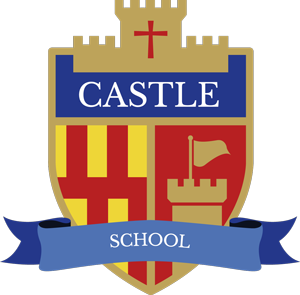Intent
Assessment:
- enables us to be certain about the appropriateness of the personalised curriculum we aim to provide for each pupil
- informs teaching
- drives progress
Pupil Progress:
Pupil progress and development is carefully monitored and assessed by teaching teams. A range of assessment tools are used by teaching staff to support the evaluation of pupil achievement and progress at all levels of development, according to the curriculum pathway being followed.
Each child and young person is assessed using a tool appropriate to their learning pathway. The assessment tools used in Castle School are:
- Early Learning Goals
- Routes for Learning
- iASEND
- MAPP
- Engagement Model
These tools allow for both summative and formative assessment opportunities.
When pupils enter Castle School, they are placed on a Curriculum Pathway based on the information within their EHCP.
Through teacher assessment and in discussion with Senior Leaders during Pupil Progress meetings, future pathways will be discussed and based on their pace of progress through Routes for Learning it will be decided whether they remain on Routes for Learning or whether they transfer onto iASEND.
Implementation
Early Learning Goals
The Early Learning Goals (ELGs) are used to assess children in Nursery and Reception in the following areas Communication and Language Development, Physical Development, Personal, Social and Emotional Development, Literacy, Mathematics, Understanding of the World and Expressive Art and Design. Learning Journals are used to record progress made over time.
Routes for Learning
Routes for Learning is used to assess pupils with profound and multiple learning difficulties (PMLD), following our Pre-Formal Pathway. The Routemap focus on pupils’ communication and social interaction skills, early cognitive development and their interaction with the environment, listing 43 possible milestones which pupils may or may not pass through on their developmental journey.
iASEND
iASEND is used to track progress for pupils with Special Educational Needs, following our Semi-Formal and Formal Pathways in four core areas: English, Maths, Science, Computing and a range of foundation curriculum areas. Assessment data is analysed in order to monitor progress, to inform planning and set targets.
MAPP
Mapping and Assessing Personal Progress (MAPP) is used to monitor the progress and achievement of young people in our Post 16 Provision. Throughout the four key areas: Education and Employment, Community Inclusion, Independent Living and Health, MAPP allows us to assess targets in more depth by giving young people a level of progress against prompting, fluency, maintenance and generalisation. In preparation for adulthood, it ensures each individual leaves us with the skills and tools needed to move onto their next steps.
Each one of our assessment tools are used by teaching staff to inform teaching and learning on a continuous basis.
Castle Learning Journeys are used to capture progress and achievement and are maintained by class teams. All members of the class team contribute to this document through observations, examples of work and photographic evidence.
Teachers prepare termly Individual Learning Plans (ILPs) which are based on a child’s Education Health Care Plan. Long term outcomes detailed on the EHCP form the basis of individual targets in addition to the class-based planning within which progress can be monitored. ILP targets are reviewed each term by class teams and is changed accordingly if it has been achieved, or if it has not been achieved, may be broken down into smaller steps.
Senior Leaders review progress with class teachers though termly Pupil Progress supporting staff and guiding them if children are not making at least expected progress.
Impact
Individually tracking and monitoring assessment data:
- Makes target setting specific and measurable
- Helps focus teaching and learning from one week to the next
- Highlights areas of strengths and needs in pupil learning
- Ensures progress across the curriculum is being made

